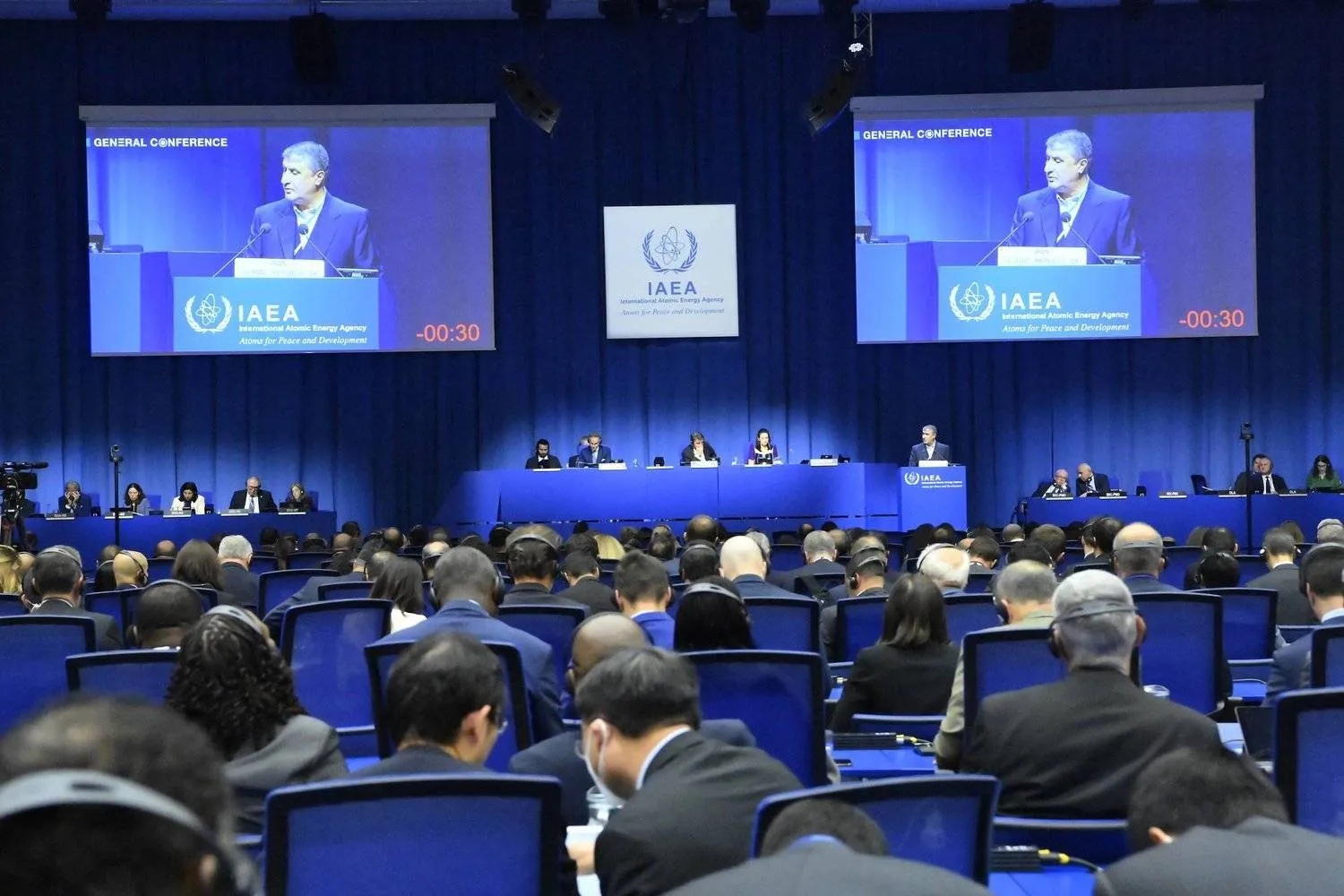The Iranian nuclear escalation raises serious concerns in light of the exclusion of International Atomic Energy Agency (IAEA) inspectors and the suspension of surveillance cameras.
However, Western countries are hesitant to get tough on Tehran for fear of aggravating Middle East tensions.
"The picture is pretty bleak, but the fact at the moment is that there is no appetite to provoke a reaction in Iran in the context of the war in the Middle East," a senior diplomat said, summing up the current deadlock.
At this week's IAEA Board of Governors meeting in Vienna, the US and the E3 group, France, Germany, and the UK condemned Tehran's lack of cooperation but refrained from submitting a binding resolution.
However, US Ambassador Laura Holgate said, "Iran's actions have intensified tensions and pushed unprecedented boundaries."
Similarly, the French Foreign Ministry spokeswoman, Anne-Claire Legendre, expressed concern about the unjustified nuclear escalation.
- "Serious blow"
In 2018, the international agreement collapsed after former US President Donald Trump withdrew from the deal that restricted Tehran's nuclear activities in exchange for the lifting of international sanctions.
Later, President Joe Biden sought to revive the agreement through negotiations in Vienna, but they have stopped since the summer of 2022.
The results reached by the UN body remain clear. It is reported that Iran currently possesses 1,283 kilograms of 60 percent enriched uranium, according to the IAEA's latest report.
The report showed that Iran now has enough uranium enriched up just short of weapons-grade to theoretically manufacture three bombs.
"That's quite an amount, especially if you don't use it for anything," said a diplomatic source.
Iran has repeatedly denied seeking nuclear weapons.
While Iran has been dragging its feet on reinstalling IAEA monitoring equipment it disconnected last year, it also recently withdrew the accreditation of several agency inspectors.
According to diplomats, Tehran's decision has affected eight inspectors from France and Germany.
A ninth Russian inspector had been barred following the detection of a technical modification in centrifuges that had caused enrichment to peak at 84 percent.
IAEA Director-General Rafael Grossi, who has been redoubling his fruitless efforts for months, said on Wednesday that these measures constituted a "very serious blow" to the agency's work.
"It takes two to tango," says one diplomat.
He explained that Iran feels more confident in the face of the Western countries' "reluctance." It also benefits from Moscow's "protection" after the two nations improved their military relations since the Russian invasion of Ukraine.
Kelsey Davenport of the Arms Control Association think tank said that while the reluctance of the IAEA Board of Governors to act is "understandable," it also constituted "a case of geopolitics trumping nonproliferation norms."
The international community especially fears an extension of the Israel-Hamas war to the border between Lebanon and Israel, which has seen escalating exchanges of fire, primarily involving Israel and Hezbollah, along with Palestinian groups.
However, Davenbauer cautioned that viewing Iran "in a vacuum" and failing to hold it accountable over its advancing nuclear program "sends the wrong signal to Tehran and other would-be proliferators."
Amid heightened tensions in the Middle East and Iran "on the threshold of nuclear weapons, there is an increasing risk that the United States or Israel will miscalculate Iranian nuclear intentions," she said, calling on the Biden administration to break the deadlock.
Heloise Fayet, a researcher at the French Institute of International Relations, noted that "we don't know how closely Tehran is linked to these groups," Western leaders take "as many precautions as possible."









